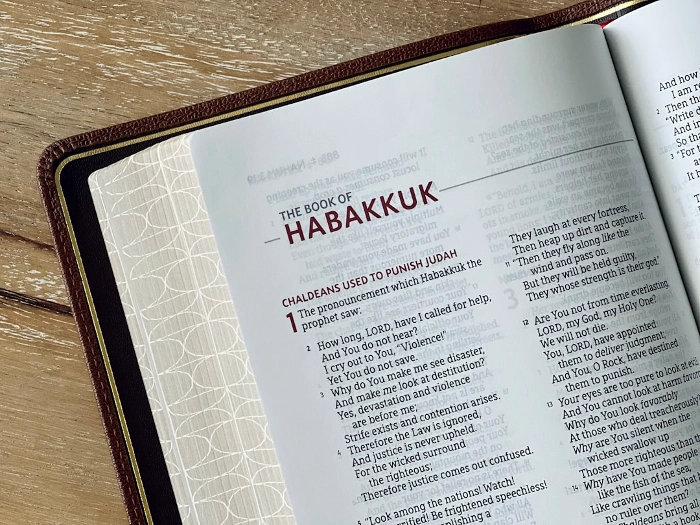Christ in the book of Habakkuk

The book of Habakkuk, a prophetic text in the Old Testament, presents a dialogue between the prophet Habakkuk and God, focusing on themes of justice, faith, and theodicy. While it does not explicitly mention Christ or the Messiah, its themes and imagery have been interpreted by Christian theologians to foreshadow the work and character of Christ.
Habakkuk begins with the prophet's lament over the rampant injustice and violence in Judah, questioning why God allows such evil to persist (Habakkuk 1:2-4). God's response is that He will raise up the Babylonians to execute judgment on Judah (Habakkuk 1:5-11). This raises further questions for Habakkuk about God's justice, as the Babylonians are even more wicked than the people of Judah (Habakkuk 1:12-17). This dialogue reflects a profound wrestling with the problem of evil, a theme that resonates deeply in Christian theology.
One of the key themes in Habakkuk is the righteousness of God and His ultimate justice. God’s assurance that “the righteous shall live by his faith” (Habakkuk 2:4) is pivotal. This verse is quoted multiple times in the New Testament (Romans 1:17; Galatians 3:11; Hebrews 10:38) and forms a cornerstone of Pauline theology. It emphasizes that faith, rather than works, is the basis of righteousness before God. This principle is central to the Christian understanding of salvation through Christ, who is seen as the embodiment of divine righteousness.
Habakkuk also emphasizes the certainty of divine judgment on the wicked and the vindication of the righteous. The vision of the appointed time (Habakkuk 2:3) and the series of woes pronounced against the Babylonians (Habakkuk 2:6-20) underscore God's commitment to justice. This mirrors the New Testament portrayal of Christ, who proclaims the coming of God's kingdom, a time when justice will be fully realized (Matthew 25:31-46). Christ’s teachings and parables often focus on the ultimate accountability of humanity before God, paralleling Habakkuk’s message of inevitable divine judgment.
Moreover, Habakkuk’s third chapter is a powerful prayer that recalls God’s past mighty deeds and expresses trust in His future deliverance (Habakkuk 3:1-19). This chapter includes vivid theophanic imagery, depicting God as a warrior who comes to save His people. This portrayal of God as a savior and deliverer is a motif that finds its ultimate fulfillment in Christ. In the New Testament, Christ is depicted as the divine warrior who conquers sin, death, and Satan through His death and resurrection (Revelation 19:11-16).
The book of Habakkuk also highlights the importance of living by faith in times of trouble. Habakkuk’s concluding declaration of faith, “Yet I will rejoice in the Lord; I will take joy in the God of my salvation” (Habakkuk 3:18), despite the coming judgment and suffering, is a profound testament to trust in God’s sovereignty and goodness. This resilient faith is echoed in the New Testament, where believers are encouraged to rejoice in the Lord always and to trust in Christ’s ultimate victory and salvation (Philippians 4:4; 1 Thessalonians 5:16-18).
In conclusion, while the book of Habakkuk does not directly mention Christ, its themes of faith, divine justice, and salvation resonate with the New Testament portrayal of Christ. Habakkuk’s struggle with understanding God’s ways, his affirmation of living by faith, and his ultimate trust in God’s deliverance provide a rich theological background that complements the Christian understanding of Christ’s mission and work. Through faith in Christ, believers find righteousness, hope, and the assurance of God’s just and redemptive plan.